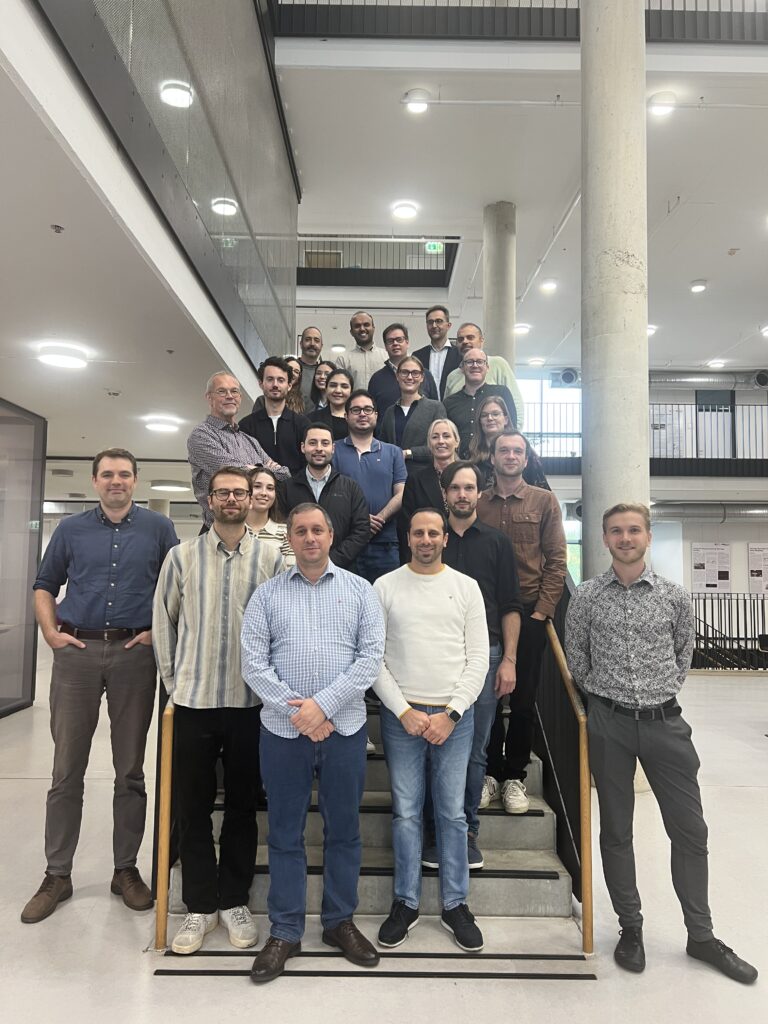
The AI-EFFECT consortium convened its Third General Assembly on 15–16 October 2025 at RWTH Aachen University’s Institute for Automation of Complex Power Systems in Aachen, Germany. This two-day meeting marked an important milestone for the project, which is now one year into its mission to accelerate the energy transition through AI experimentation. Partners gathered to review progress, exchange insights, and set the course for the next phase of development while hosting technical workshops.
The first day of the assembly focused on technical alignment, beginning with a workshop on service pipelines and deployment led by Work Package 1 (WP1). This session provided an opportunity for partners to examine the structure of AI-EFFECT services, data execution pipelines, and the mock-up stages required for implementation. Discussions emphasized the importance of ensuring that each node—the Danish, Dutch, Portuguese, and German nodes—understands the expectations for service design and can adapt general mock-ups to their specific needs. The afternoon continued with a workshop on operating principles, where governance, interoperability, and compliance were addressed to guarantee that the platform will be robust, scalable, and aligned with European standards.
On the second day, attention shifted toward platform architecture and long-term strategy. Partners worked collaboratively to map services to the AI-EFFECT platform, identify data interfaces, and define orchestration requirements for seamless integration. A dedicated session explored sustainability models, partnerships, and commercialisation pathways that will ensure the project’s impact extends beyond its lifecycle. These discussions were complemented by detailed updates from all work packages, highlighting achievements, addressing challenges, and outlining next steps as the project approaches its first reporting period. The General Assembly concluded with a clear sense of direction. Partners are now preparing to showcase and refine the technical architecture that will underpin the AI-EFFECT platform. With governance principles established and timelines defined, the consortium is well-positioned to deliver an interoperable environment for AI experimentation that supports Europe’s energy transition goals.


